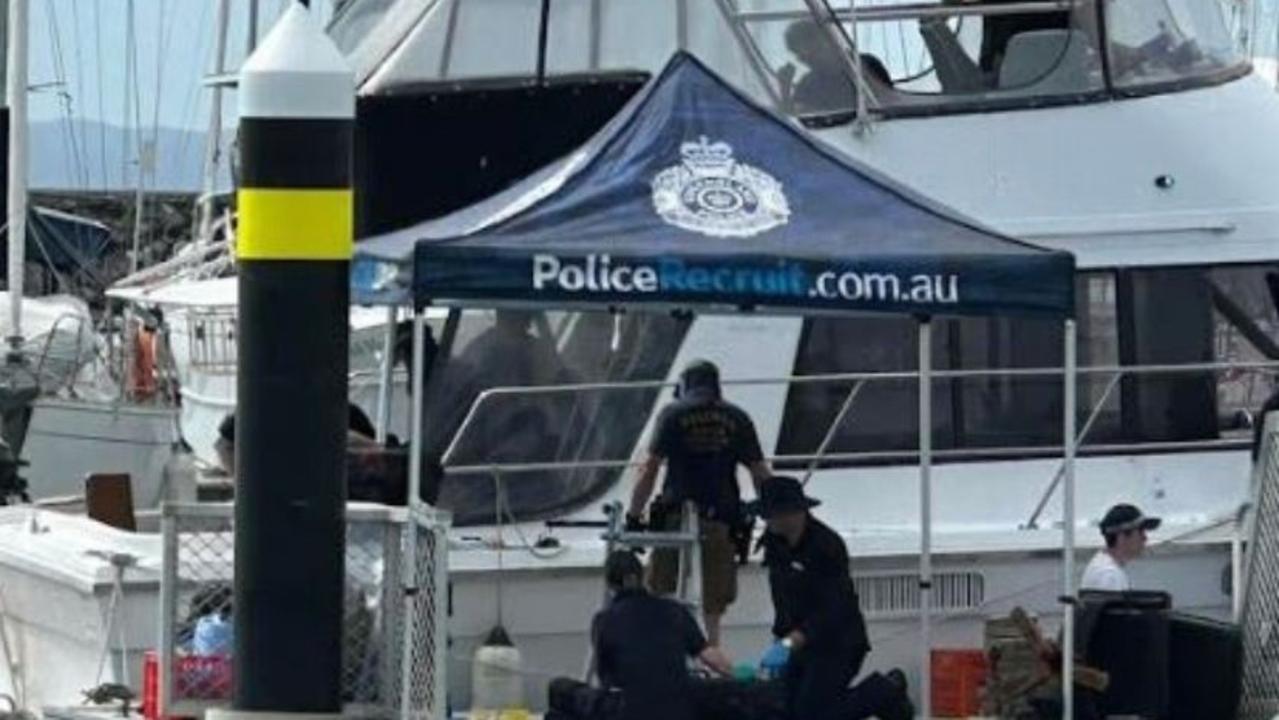Ipswich tops list for best overall council rates and charges deal
Ipswich has served up the best overall rates and charges deal out of seven southeast Queensland cities, edging out Brisbane but leaving Redland ratepayers to pick up the most expensive bills. USE OUR INTERACTIVE TABLE TO FIND OUT YOURS
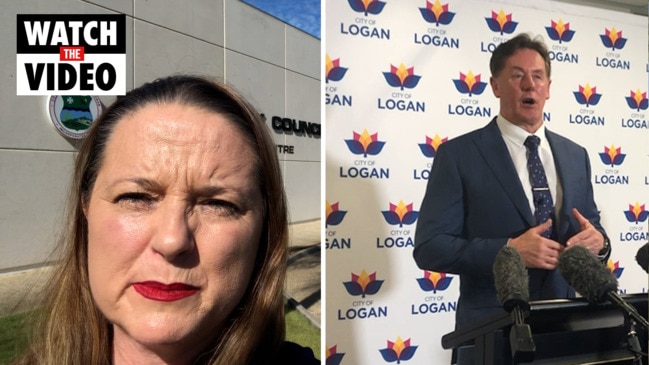
Logan
Don't miss out on the headlines from Logan. Followed categories will be added to My News.
Ipswich homeowners have been served the best rates and water bill deal in southeast Queensland.
The city of 237,000 west of Brisbane, edged out Brisbane and Moreton Regional Council to top the list of cheapest rates and charges bills of seven southeast councils.
At the other end of the scale, an average ratepayer in Redland fared the worst, paying over $600 a year more than Ipswich in fees and charges.
South East Queensland Community Alliance, an amalgam of community advocacy groups across the southeast, said in its analysis, Brisbane came in second closely followed by Moreton Bay Regional Council, Sunshine Coast, Gold Coast, Logan and Redland.
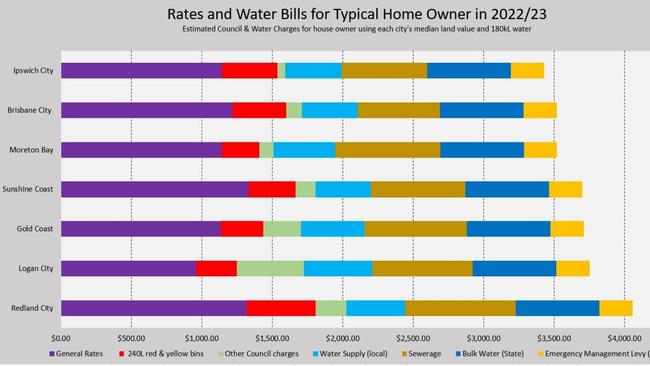
The Alliance analysis found an average typical Ipswich homeowner could expect to pay about $3430.26 in fees and charges including water bills, this financial year, while a Redland ratepayer would fork out about $4057.89.
Brisbane had the second lowest overall rates and charges with a typical average annual bill this financial year expected to be about $3519.22.
In third place was Moreton Bay Regional Council where a typical homeowner could expect to pay about $3521.06 in rates, fees, and charges including water, this financial year.
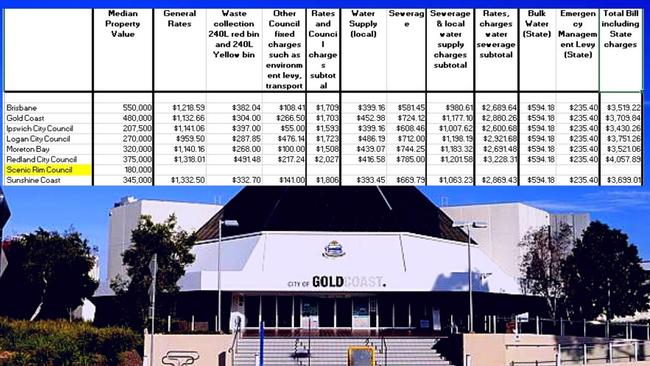
The costs were more expensive in Sunshine Coast where a typical ratepayer can expect to pay about $3699.01 and the Gold Coast, where a homeowner will pay about $3709.84.
In Logan, a typical homeowner is expected to pay about $3751.26 a year, which includes council and state water and sewerage charges, an environmental levy, rubbish collection and an emergency levy for a property with land valued at $270,000.
The most expensive local government area in the southeast was in Redland where a typical homeowner will pay about $4057.89 in rates, charges and water over the year.
South East Queensland Community Alliance based its analysis on median residential land values for each council area and assumed that households would use 180 kilolitres of water a year.
The estimated average costs took into account early payment discounts in Brisbane, Logan, Ipswich and Gold Coast.
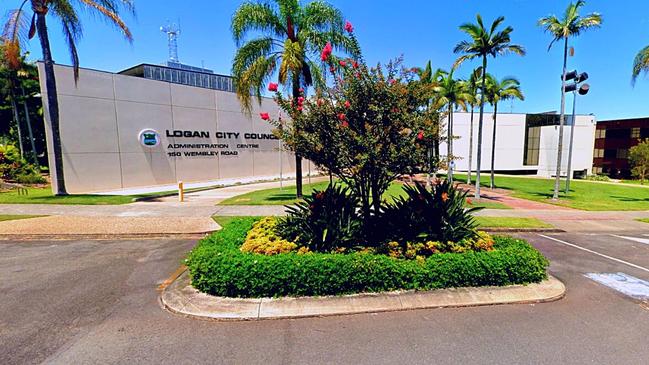
South East Community Alliance president Chris Walker said ratepayers should be aware there was a variance of up to $627 a year in fees and charges across the seven council areas and advised property buyers to investigate the differences in cost of ownership.
CHECK YOUR OWN AREA USING OUR INTERACTIVE TABLE
“Redland is one of the most expensive places to buy water, with sewerage and local water supply charges totalling $1201.58 compared to Brisbane where those charges added up to $980.61 — that’s a big difference,” he said.
“The bins are another charge where there is huge divergence.
“In Redland, a typical household pays $491.48 annually for two 240l bin collection services while in Moreton Bay, ratepayers only get charged $268 a year.
“Logan ratepayers have the highest fixed charges with a $413.80 community service levy and an $87.40 environmental levy compared to Ipswich which only has a Enviro Plan charge of $52 and $3 for the rural fire brigade service charge.”
Logan is the most expensive city for water and connection charges but Redland has the most expensive sewerage fees.
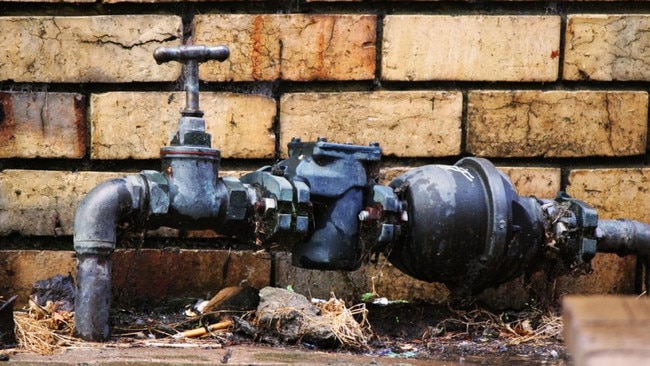
All southeast Queensland councils charge the same state water charges of $3.301 per kilolitre and collect the $235.40 state emergency management levy.
The increase in these charges was 2.2 per cent more than in 2021/22.
Increases in council and water charges would be, on average, less than the 6 per cent Brisbane CPI over the financial year.
Homeowners above the minimum general rates threshold may get substantially-higher-than-average rate increases if their land values have increased more than the average for their city.
But homeowners with above average increases in land values and with property valuations above the minimum general rate, may experience rates hikes above the inflation rate.
Not change relative change in land value will drive your rates increase above or below the community average.
Homeowners in Brisbane and Redland ended up with total increases in costs of more than 4 per cent, whereas in Logan and Ipswich increases were held to about 2.5 per cent.
Logan ratepayers were hit with a 2.4 per cent increase in their total fees and charges bill compared to last year, while Redland ratepayers were whacked with a massive 4.1 increase.
Pensioners should choose carefully where to live as discounts vary from $648 in Brisbane to $245 in Ipswich.
In Redland, full pensioners get a flat $335 discount off their rates, a figure which has not changed for five years.
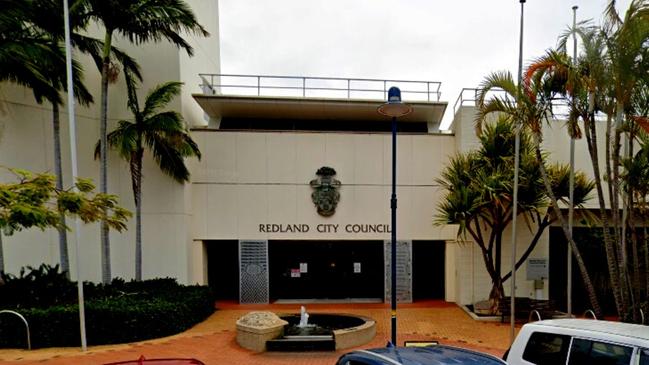
In Logan, full pensioners can expect a discount of up to $408 which includes a 10 per cent cut to bin fees.
Pensioners on the Sunshine Coast can expect a $271 discount while those on the Gold Coast can expect $270 off.
In Ipswich, the pensioner discount is $245 and Moreton Bay Regional Council $250.
But the overall rates bill in these two cities is less than in Redland and Logan.
Mr Walker said a main component of a rates bill, the general rates, were calculated using land values determined by the Valuer-General.
He said councils such as Brisbane, Gold Coast, Ipswich and Logan adopted an averaging value for general rates charges over three years while Redland, Moreton and Sunshine Coast did not.
Each council sets its minimum general rate with some, including Redland and Sunshine Coast, using more than one rating scale which is adjusted depending on land valuations.
Ipswich mayor Teresa Harding said the outcome of the SEQ Community Alliance independent comparison was very pleasing but the council would continue toseek value for money for all residents.
“In a first for Ipswich, a new part-pension remission was added in 2022/2023 budget to existing relief measures, alongside the existing full pension remission and early payment discount,” Cr Harding said.
“Council is also offering hardship assistance for flood-affected residents and property owners impacted by the floods this year.”
Brisbane City Council finance and governance chair Fiona Cunningham, who oversees the budget and rates for the country’s largest city, said years of strong and sensible financial management ensured Brisbane maintained the lowest residential minimum rates (which does not include water and other charges) in southeast Queensland.
“Our $4 billion budget prioritises Brisbane’s flood recovery, ensures residents continue to get more and pay less for their rates and includes a critical new measure to help address housing affordability and chronic rental shortages.”
Moreton Bay Regional Council mayor Peter Flannery saidhis local government area was one of the fastest growing in Australia, and the council knew it had to deliver a higher-than-usual rates rise this year in order to keep up with that growth.
“We’re starting from a lower rates base and we’ve managed our debt responsibly for many years so we can now invest into the infrastructure and services that people need in the face of huge growth,” he said.
“We also know many residents have been through hard times with COVID-19, the recent floods, petrol prices skyrocketing and inflation continuing to grow.
“So that’s why we were determined to keep our rates increase below CPI, which we managed to do for the vast majority of our residents.
“While other councils are making cuts to their projects to manage their debt, we’ve managed to forge ahead and actually increase our investment and deliver a record capital works program.”
Sunshine Coast Council said it adjusted rating categories to mitigate the full impact of the valuation increases and did not use the median property valuation for comparisons and questioned the validity of comparing water charges.
“Sunshine Coast Council understands some people are experiencing financial hardship,” the council said.
“We encourage them to contact council once they receive their rate notice and before their rates are due for payment to arrange a payment-by-instalments agreement over a six-month period, without interest being charged.
“Water charges are calculated and charged by Unitywater which also covers Moreton and Noosa councils.”
Gold Coast Council mayor Tom Tate said his council offered the best discounts for early rates payment and for pensioners.
“We are conscious of how our twice-yearly rates can impact a family budget, or business,” he said. “That’s why we have a 10 per cent pay-early discount and I challenge any other council in SEQ to match that generous discount.
“We work with all ratepayers on payment plans if they are having issues meeting the payment schedule. We offer further assistance for pensioners when it comes to rates and other services.’’
Redland City Council, where costs were the highest, said it was unfair to compare rates, charges and fees across southeast Queensland because councils offered different services, had different geography, varied in size of ratepayer bases, and had a different mix of residential and commercial ratepayers.
“Redland City Council has free recycling and waste transfer stations, six residential islands to service, a small ratepayer base, an older demographic which we assist through $3.2 million in pensioner remissions each year, and a smaller proportion of commercial ratepayers than many other councils,” the council said.
“In addition, charges for water consumption, for example, will clearly depend on the amount of water used by a household; while the bulk water price is set by the Queensland government which equates to 11 per cent of our 2022/2023 budget.
“It is also inaccurate to include fees as these are clearly user pays only. For example, if you choose to undertake a plumbing assessment. Some charges also differ depending on the type of property a ratepayer has.”




